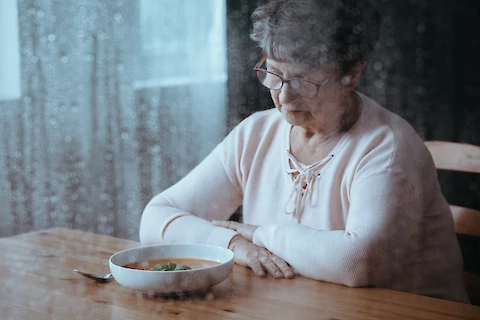
As we age, our memories can become foggy, and it's not uncommon for elderly relatives to forget if they've eaten. Unfortunately, that can mean that elderly relatives are not getting the nutrition they need. If you have an elderly loved one who is struggling to keep up with eating requirements, there are several things you can do to help them remain more aware of their needs or to ensure that they have eaten enough.
Reasons Why Seniors May Forget If They Have Eaten
There are several key reasons why seniors may forget if they have eaten throughout the day.
Memory Loss
Memory loss can, in general, make it difficult for seniors to clearly remember if they have eaten throughout the day. Dealing with memory loss can cause seniors to struggle with a variety of regular tasks, including remembering what they have eaten and when. As memory declines, seniors may think that they have eaten, only to discover that they have not actually had anything the entire day.
Medications
Some medications can suppress appetite and even make seniors feel full despite the fact that they have not eaten. Paying attention to known medication side effects can help caregivers and loved ones avoid lapses in nutrition.
Waning Appetite
Many seniors have, for most of their lives, relied on hunger cues to let them know when they needed to eat. However, the waning appetite that occurs with age can make it more difficult for seniors to track when mealtime rolls around, which means seniors may forget to eat.
How to Help Seniors Who Forget If They Have Eaten
If you have a senior loved one who struggles to remember if they have eaten, there are several things you can do to help.
Create a Schedule
Knowing that meals occur on a preset schedule can make it much easier to keep up with when it's time to eat. A regular schedule can help get seniors to the table even if they don't otherwise notice hunger cues. Furthermore, a regular eating schedule can encourage seniors to feel hunger at the same time each day.
Track Eating Habits
Tracking a senior loved one's eating habits can give you a better idea of what they are likely to eat and when. An app can help record meals and snacks. In some cases, you may also want a caregiver to keep up with what your senior loved one eats.
Prepare Meals Beforehand
Meal prepping can prove incredibly advantageous for seniors since it ensures that there are healthy meals available when they need them. Furthermore, caregivers can check on prepared meals and make sure that they have been eaten since they will know what was made and how long it should last.
Offer Nutritious Snacks
Snacking throughout the day can help make up for some of the calories seniors struggling with low appetite may not eat at mealtime. Making sure that those snacks are nutritious can help seniors stay healthy.
Senior Care Providers Can Help Make Sure Your Loved One Eats
If you're ever in need of additional senior care services, don't hesitate to turn to Senior Helpers Manalapan. We offer personalized care plans and in-home care assistance in Monroe Township, Englishtown, Freehold, Manalapan, Asbury Park, Monmouth County, and Middlesex County. Contact us today to learn more.